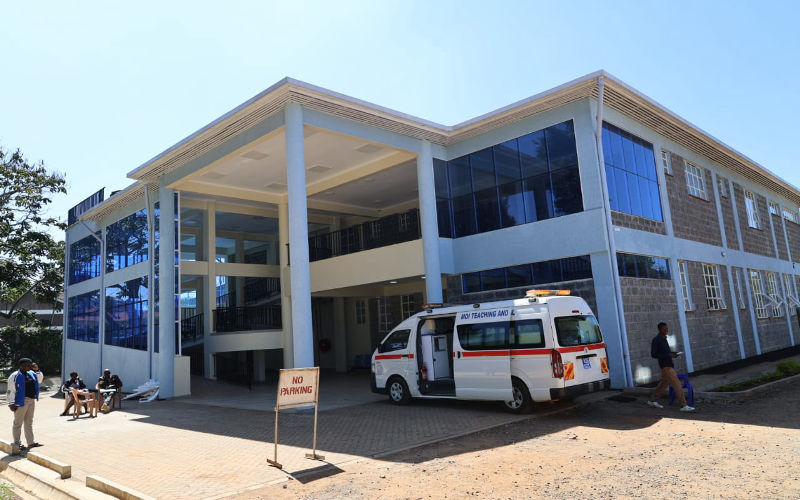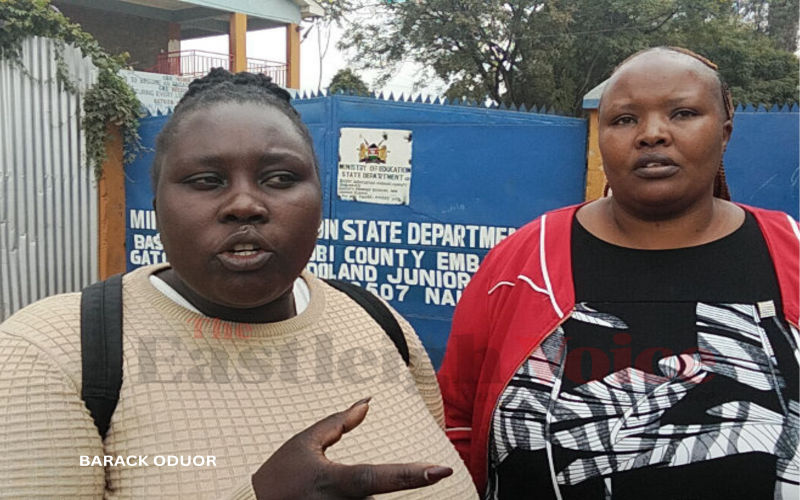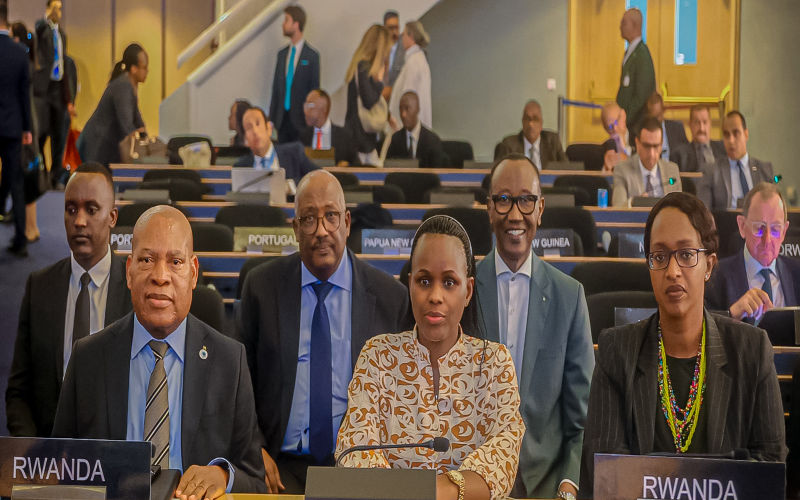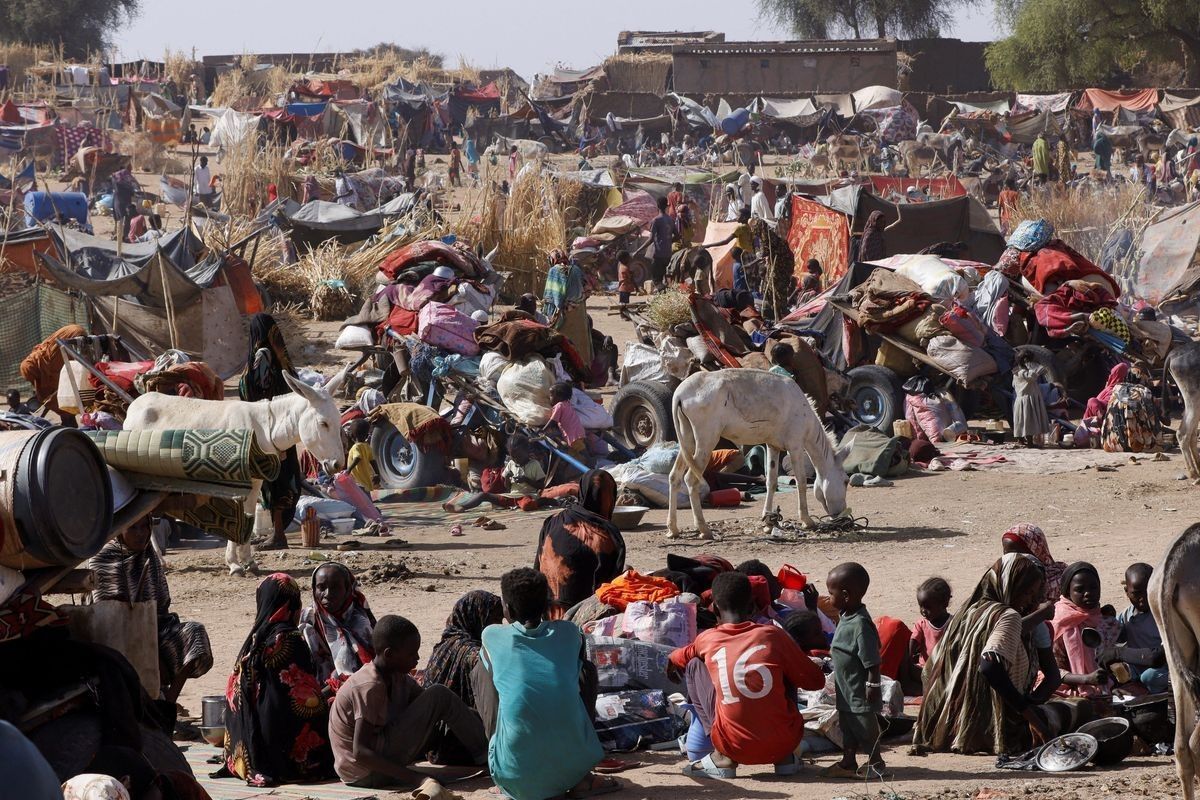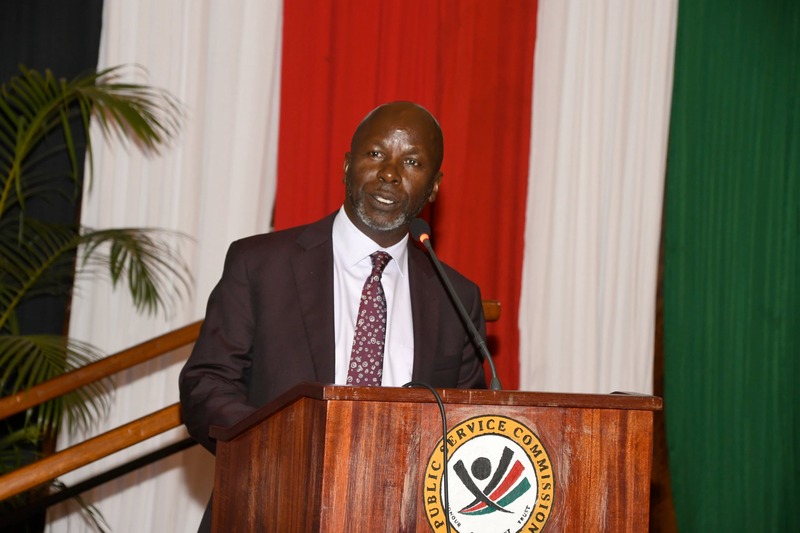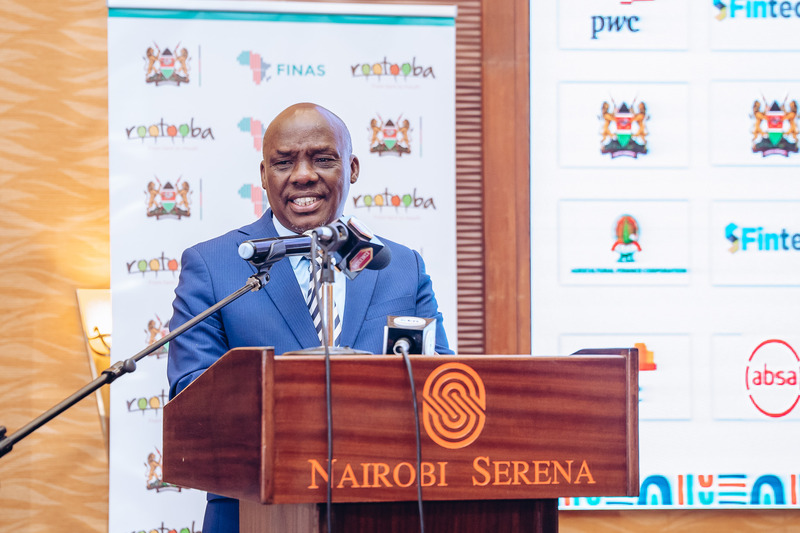Kibra's Nubian community celebrates historic appointment of Maj-Gen Fatuma Ahmed
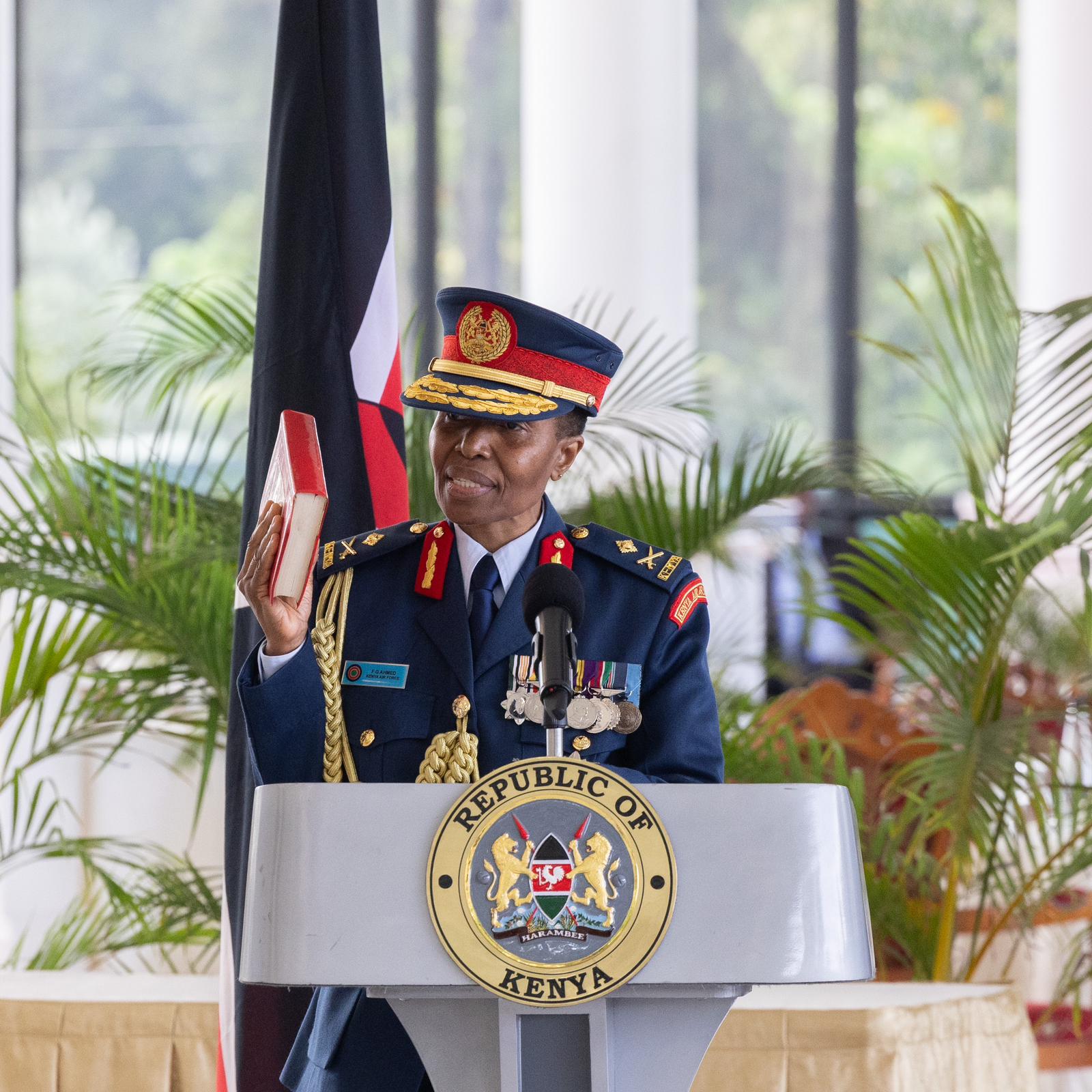
In her 32 years in the military, Maj Gen Fatuma has pushed boundaries and rewritten history as a woman and a Nubian. Her military career began in 1983 when she joined the Kenya Defence Forces' Women Service Corps.
On Thursday, the family and friends of Major General Fatuma Ahmed, the first female air force commander, celebrated the historic appointment in her birthplace of Kibra, Nairobi.
Ibrahim Ahmed, the brother to the Major General, told The Eastleigh Voice that the Ahmed family was “overjoyed but not shocked” by the Thursday morning announcement by President William Ruto.
More To Read
“We are very happy as a family for our sister’s achievement. The rank she has attained is very high. She deserves it. We expected this. She has been a hard-working and disciplined person ever since she was a girl. We knew she was destined for greatness,” said Ibrahim.
At the time the family was speaking to the Eastleigh Voice, Maj Gen Ahmed’s elder brother, Brigadier General Mohammed Ahmed, was arranging for a family gathering to honour his younger sister.
“We feel so much honoured by the president’s decision to appoint my aunt Fatuma. The news has brightened Kibra despite the destructive rains and floods we are experiencing today” Bauwa a niece to Maj Gen Mohammed told the Eastleigh Voice.
“My Uncle is preparing for a family get-together where a Sheikh will conduct a dua prayer for all of us to attend to thank God and congratulate Aunty Fatuma,” Bauwa spoke from Kibra.
 Major General Ahmed with daughter and husband Maj Gen (Rtd) George Owino. Photo: (Courtesy family)
Major General Ahmed with daughter and husband Maj Gen (Rtd) George Owino. Photo: (Courtesy family)
Kibra is home to the Nubians, a community that is yet to be recognised as a Kenyan ethnic group 61 years after independence. It is here that the Major General was born and raised as a typical Nubian girl to become Kenya’s highest-ranked female military officer.
“We thank the President for not only appointing a woman but a person from a minority and marginalised community like the Nubians. This appointment is like a reminder to Kenyans that indeed we have a community called the Nubians. Ironically, she is appointed while her community is yet to be gazetted as a Kenyan ethnic group,” Twalib Mohamed an official of the Nubian Council of Elders said in an interview with the Eastleigh Voice.
Like most Nubians Maj Gen Fatuma’s family moved to Kenya from Sudan in the 1900s as part of the King African Rifles to serve the British colonialists as askaris for the newly established British East Africa Protectorate. She comes from a long line of career soldiers in her family that traces her roots to Sudan’s Nuba mountains.
Her Sudan-born grandfather Mohammad Felisit was one of the highest-ranked Africans in the colonial army. He was a Regimental Sergeant Major in the Kings African Rifles at the time of his retirement.
"Our great grandfather was one of the most decorated Nubian soldiers who settled in Kibra from Sudan. Our grandfather Mohammad took up from our great-grandfather to become a soldier too. After independence, our brother Mohamed Ahmed served in the army and retired a few years ago as a Brigadier. Our father was however not in the military," Ibrahim said.
 Mohammed Felisit (Second on the 2nd row) Sudanese-born great grandfather to Kenya Airforce Commander Maj Gen Fatuma Ahmed in an undated photo as a Regimental Sergeant Major in the Kings African Rifles(KAR). Photo: British Army Museum
Mohammed Felisit (Second on the 2nd row) Sudanese-born great grandfather to Kenya Airforce Commander Maj Gen Fatuma Ahmed in an undated photo as a Regimental Sergeant Major in the Kings African Rifles(KAR). Photo: British Army Museum
A photo from the Major General family obtained by The Eastleigh Voice shows a decorated Mohamed Felisit with other King African Rifles officers. Almost a century later, Sudan-born Mohammed Felisit's great-grand daughter, Maj Gen Fatuma Ahmed would be appointed as the Kenya Airforce Commander
 Ahmed Mohamed father to Maj Gen Fatuma on the 2nd left last row and her grandfather Gismillah Mohamed (3rd)Photo: Ahmed Gismillah family
Ahmed Mohamed father to Maj Gen Fatuma on the 2nd left last row and her grandfather Gismillah Mohamed (3rd)Photo: Ahmed Gismillah family
“Our great grandfathers came to Kenya to serve in the military during the colonial era. Nubian soldiers were the most highly regarded in the army. Our history and that of Major General Fatuma is intertwined with military service and so is our culture. Being a soldier runs in our blood. Military service is in her DNA,” Nubian elder Twalib Mohamed said.
In her 32 years in the military, Maj Gen Fatuma has pushed boundaries and rewritten history as a woman and a Nubian. Her military career began in 1983 when she joined the Kenya Defence Forces' Women Service Corps.
She was commissioned as a Second Lieutenant in the Kenyan Women's Service Corps in 1985 and transferred to the Kenya Airforce when the Women's Service Corps was disbanded in 1999. She made history in 2015 by becoming Kenya’s first female brigadier.
The 59-year-old career soldier married to Major Gen (Rtd) George Owino attributes her interest in pursuing a career in the military to her uncle Abdirahim Ahmed.
“I was adopted by my uncle who was also in the military. He was a staunch Muslim. He had attributes that I admire including discipline, and hard work and he started shaping my life at a very early stage,” Maj Gen Fatuma said in a previous interview with a local TV station.
The uncle lived in Meru town and had taken over the responsibility of raising the young Fatuma. Fatuma who speaks fluent Kimeru was therefore partly raised in Meru town where she went to school and it is here that she applied to join the military.
“Some of my family members however discouraged me from joining the forces they said that is not a profession for women but I was determined to make a difference in my life,” said Maj General Fatuma.
The appointment of Maj Gen Ahmed comes three weeks after President William Ruto announced at a State House Iftar dinner that he will gazette the Nubian ethnic group as the 45th tribe of Kenya. The community continues to face significant obstacles in their efforts to secure a national identity card and is the only non-border minority who are subject to special vetting procedures when applying for their national identity card.
“We have been promised for long to be recognised as a Kenyan ethnic group only to see the Makonde of Mozambique, Shona people of Zimbabwe, Wapemba of Tanzania and Kenyan Asians recognised before us. The fact that one of our own Fatuma is now one of the most highly-ranked government officials is every reason for us to celebrate. We have been marginalised since independence. This is a good beginning for the Nubians although it should be noted that her appointment was wholly because of her good records in the military and not her ethnic group,” Siyama Ismail the Nubian Cultural Ambassador told the Eastleigh Voice.
There are thought to be 100,000 Nubians in Kenya, most of whom reside in Kibra, Kisii, Isiolo, Eldama Ravine, Kibos, Kisumu, Mombasa, Mumias, Machakos, Bungoma, Meru, and Oyugis. Kibra, is the home of the retired Sudanese King African Rifles (KAR), and the military reserve founded in 1902.
Top Stories Today



